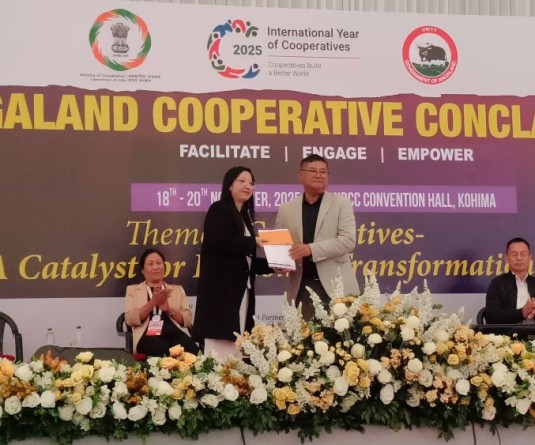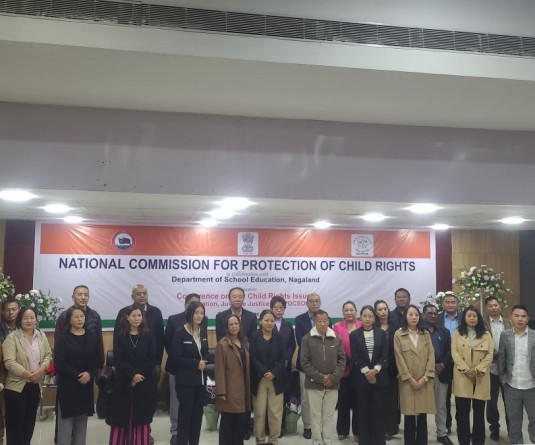
Kiphire, June 25 (MExN): Kiphire Wildlife Division of the Department of Environment, Forests and Climate Change organized programme on human animal conflict mitigation awareness and interaction with public on June 22 at the Community Hall and Recreation Centre of Fakim village, Kiphire district.
The village council chairman of Fakim, Hanruthong in his address requested for greater coordination between the department and the villagers for the benefit of conservation.
Meanwhile, Suman WM Sivachar (IFS), Wildlife Warden Kiphire informed the participants on the importance of coexistence with wildlife. The reduction of forests and reduction of food in the habitats of the wildlife are few of the reasons for the wildlife to venture into the human habitation, he said. Suman further highlighted the policies of the State Government and the MoEFCC in addressing the problem and also spoke about the benefits of conservation.
It was highlighted that wildlife including black bear, Blyth’s tragopan, khaleej pheasant, spotted linsang, wild dogs, braking deer have been captured by camera traps in the area. Rare butterflies like Bhutan glory are also found in the area. “These rare and beautiful fauna found in this area may be lost forever if not for the continued and inspiring efforts of the local villages like Fakim,” he acknowledged.
Samuel Thyug, SDO (civil) Pungro Sub-division, the chief guest, shared with the participants the importance of conservation. He gave the example of extinct bird Dodo that was once endemic to Mauritius Islands. He mentioned how hunting destroyed and wiped out an entire species from the face of the earth. He meanwhile urged the participants to continue conserving the flora and fauna considering that Fakim has been one of the forefront villages in Nagaland in conservation efforts thus far, a press release informed.
The guest of honour, Rajesh Kumar (IFS), DFO Kiphire appreciated the conservation efforts and support of locals that had led to the discovery of new species by scientists in Fakim Wildlife Sanctuary area – Molineria fakimense (named after Fakim village) and Penkimia nagalandenesis (named after Penkim village).
Tsuseki, member of the Bhutan Glory eco-club of Fakim administered the Green Pledge as part of Swachh Bharat Abhiyan and Harit Bharat programme. The participants vowed to practice total sanitation and cleanliness. The programme ended with distribution of animal colouring books, notebooks, crayons and other stationery to all the children of the village.
Around 90 persons including officers from Administration, Police and allied departments, women and children attended the programme.






